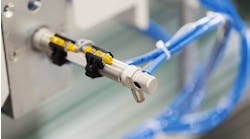What can you do when a supplier of parts or material suddenly stops — or threatens to stop — the flow of product to you? Will your way of doing business be altered radically, or, will you simply have no business to run? Companies finding themselves in such a circumstance invoke the assistance of a court of law to petition for relief.
Conflict arises
Often, the company that is asking a court to order another party to continue to supply product owes money to that company and may be in breach of its contract because of its failure to pay for product previously provided. However, that debt does not necessarily mean that the court will not order shipments to continue. In such cases, the party who owes the money and asks for relief from the court, may claim that it is not in breach of any contract because it has allowable set offs to the amount owed due to faulty product supplied, or that it is paying in accordance with industry practice, the custom between the parties or the terms of a governing contract.
If the flow of parts or material ceases, a party can successfully argue that the flow of parts must resume. That is, the courts have the authority to compel a vendor to resume supplying its wares. Typically, the party seeking such relief must establish, for example, that they will be irreparably harmed if the flow of product does not resume. Irreparable harm is harm that cannot be fully compensated by money.
For example, if a party merely claims that it will suffer loss in profit, then such damages are not irreparable because they can be compensated for at a later time with a money judgment. Irreparable damages can arise where the complaining party successfully establishes that without the continued flow from the supplier, the customer's business, along with others, will be destroyed, its employees will be discharged or laid off, or its name and reputation will be significantly impacted.
Court intervention
In order to compel a supplier to continue providing goods, a company must also convince the court that it is likely to succeed on the merits of its claim. The customer may need to show that it has a valid contract obligating the supplier to ship ordered product, or that a reasonable person in the industry would expect shipment to be made.
The courts also consider the balancing of harms if it were to order a company to continue to supply product. The supplier will likely argue that if it is forced to continue to supply product when it is not being paid, then it will not be able to pay its own debts, thereby causing it harm. On the other hand, the customer will argue that it will be harmed if the supply is discontinued since it cannot continue to operate without such supplies. The courts often allow the parties to conduct examinations of witnesses and to seek and receive the production of documents on a short timetable in order to arm them with the facts in preparation for a full hearing on disputed issues such as these.
The struggle of good and evil finds its way into the courtroom. It may be that one side argues that its loyal employees will join the ranks of the unemployed if its supply is cut off, while ignoring its own history of failing to pay for the very product it now wants the court to order be provided.
Yes, times are tough. And, these well-choreographed battles get settled. Why? Because they need to be. No supplier wants the stigma in its industry of having been responsible for a catastrophe plastered on the front page of the financial news. On the other hand, no vendor wants its sole-source provider to be justified in lawfully being able to stop the flow of needed component products or materials. Thus, in most cases, reasonable minds carry the day, business sense is restored, and the world's businesses go back to making money.
Pete C. Elliott is vice-chairperson of the Trial Department at Benesch, Friedlander, Coplan & Aronoff LLP in Cleveland, and is the team leader of its Fluid Power Defense Group. Contact Elliott at [email protected]


